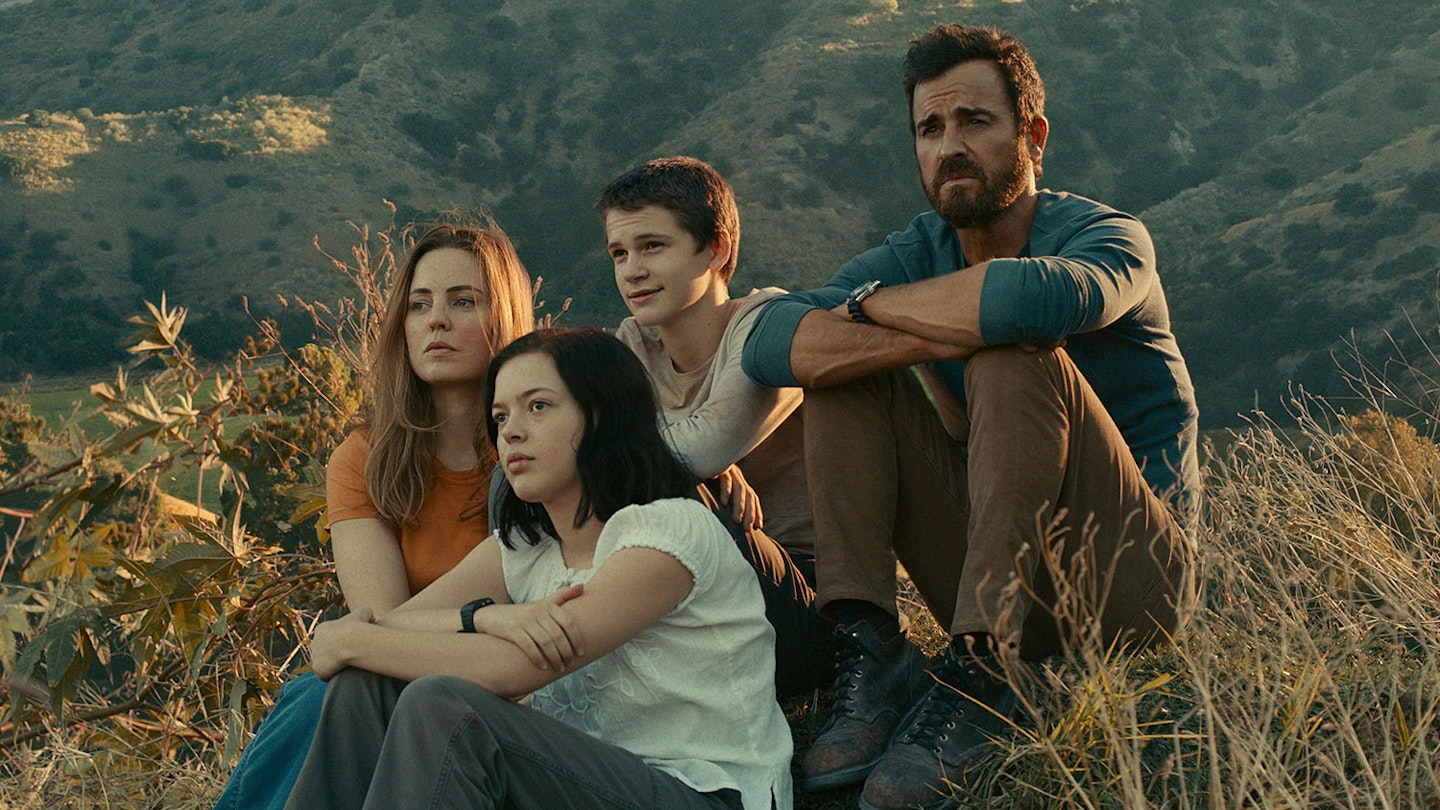With a show boasting a hero who is fervently anti-technology airing on the platform owned by the biggest tech company on the planet, The Mosquito Coast is a strange beast all round. Jumping off from Paul Theroux’s 1981 novel (more faithfully adapted by Peter Weir with Harrison Ford excelling as the unlikeable protagonist), showrunner Neil Cross (Luther) embraces the book’s basic ingredients — a family pulled along by an inventor on madcap exploits — then makes a very different cake that bears so little resemblance to its inspiration as to make you wonder why Cross just didn’t do his own thing altogether. It’s not that this version of The Mosquito Coast is bad. From Justin Theroux’s performance to the high production values, there’s a lot to like. It just doesn’t do what it says on the tin.
The show delays answering the key dramatic questions — to the point where it becomes frustrating rather than intriguing
The show diverges from the source material from the get-go. Allie Fox (Theroux, nephew of Paul, cousin of Louis) is still a failed inventor, making ice out of fire, with an overzealous distrust of convention and parlaying hardship into “an adventure”. But rather than embark on the family vacation from hell because he firmly believes modern (American) life is rubbish, as in the novel, Allie 2.0 takes his clan — wife Margot (Melissa George), daughter Dina (Logan Polish) and son Charlie (Gabriel Bateman) — on the lam from the US government. Their escape takes them to Mexico, and after an episode crossing a no man’s land used by the US army as a bombing range, the show pivots to an over-familiar Ozark Breaking Bad vibe with the Foxes becoming involved with a cartel. Taking flight, the family also has to deal with Paterson Joseph as Allie’s mysterious point man, Ian Hart as a lethal assassin in a nifty hat and a pair of NSA agents (Kimberly Elise, James LeGros) who are the closest The Mosquito Coast comes to comic relief.
The result is an engaging show, throwing up rescues, chases, run-ins with border militia, last-minute escapes and (an unlikely) prison break-out. Theroux brings charisma and energy to Allie, a kind of eco-warrior MacGyver, turning chicken grease into petrol, fluent in the dark web and banning his kids from cell phones/pop culture (Xbox and the Millennium Falcon mean nothing to them). Yet the show delays answering the key dramatic questions — what has Allie done wrong? Why does the family live this way? — to the point where it becomes frustrating rather than intriguing: at one point Allie is about to spill the beans to his understandably impatient kids only for a maid to walk in and snuff out the answer. With the crucial piece of the puzzle consistently denied, the result is that a lot of The Mosquito Coast begins to feel like padding.
The lion’s share of the episodes are directed by Rise Of The Planet Of The Apes’ Rupert Wyatt (he is also credited as an exec producer), so there’s some pretty stylish filmmaking on show, from a camera flying through an ice-making machine to well-tooled action to striking, grisly imagery, such as stuffed animals getting shot to bits in close-up slow motion (beware, there’s also some heavy-handed butterfly symbolism). The show delivers an interesting portrait, treading a line about whether the Fox family’s nomadic lifestyle is to be lauded or lambasted. It’s here where The Mosquito Coast thrives, rather than in its reliance on well-worn south-of-the-border disorder.
